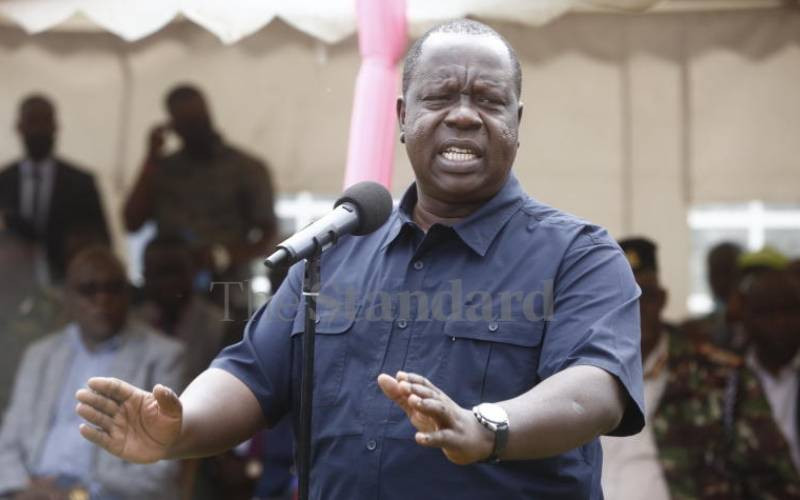×
The Standard e-Paper
Kenya’s Boldest Voice

Interior Cabinet Secretary Fred Matiang’i has said plans for a smooth transition are on course after the August 9 General Election.
Dr Matiang'i revealed that the Assumption of Office Committee that is constitutionally mandated to oversee the handover of power from President Uhuru Kenyatta to whoever Kenyans will elect, has held a series of meetings.